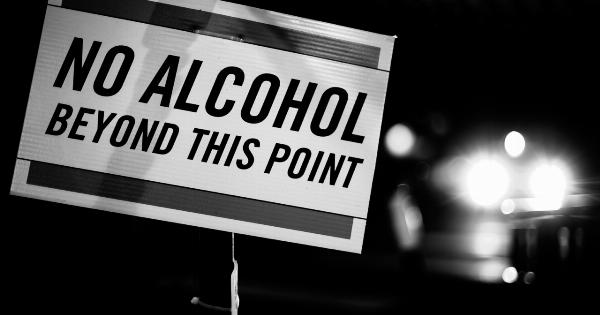Headaches can be incredibly debilitating, especially when they occur frequently or after certain activities—such as eating.
Having a headache after eating can be puzzling and uncomfortable, but the good news is that there are often identifiable reasons behind this phenomenon. In this comprehensive guide, we will explore the various factors that can contribute to headaches after eating, from food allergies to caffeine. Stay tuned for a complete picture guide to help you better understand and manage this issue.
1. Food Allergies and Sensitivities
If you find yourself experiencing headaches after eating, it is crucial to consider the possibility of food allergies or sensitivities.
Some individuals may have undiagnosed allergies or sensitivities to certain foods, which can trigger headaches as a symptom. Common culprits include gluten, dairy, eggs, soy, and nuts.
To determine if you have a food allergy or sensitivity, consult with a healthcare professional who can recommend appropriate diagnostic tests.
Once identified, eliminating the offending food from your diet can significantly reduce or eliminate post-meal headaches.
2. Artificial Food Additives
The food we consume today often contains various artificial additives, such as preservatives, colorings, and flavor enhancers. These additives can trigger headaches in susceptible individuals.
Monosodium glutamate (MSG), commonly found in processed foods and Asian cuisine, is notorious for causing headaches in some people.
Reading ingredient labels and opting for whole, unprocessed foods can help you avoid artificial additives and potentially alleviate headaches after eating.
3. Caffeine Withdrawal
Many people rely on caffeine to kickstart their day or stay alert. However, excessive caffeine consumption can lead to a cycle of dependence, and the absence of caffeine can trigger withdrawal symptoms, including headaches.
If you experience headaches after cutting back on caffeine or missing your regular fix, caffeine withdrawal may be to blame.
Gradually reducing your caffeine intake, staying hydrated, and getting enough sleep can help minimize withdrawal symptoms and prevent post-meal headaches.
4. Dehydration
Dehydration is a common cause of headaches in general, and it can also contribute to headaches after eating. When your body is dehydrated, blood flow to the brain may be affected, leading to head pain.
Moreover, certain foods can increase water loss or contain additives that worsen dehydration.
Ensure you are adequately hydrated by drinking enough water throughout the day. Limit your intake of salty and processed foods, as they can exacerbate dehydration.
5. Low Blood Sugar
Low blood sugar levels, also known as hypoglycemia, can result in headaches after eating. This is especially true if you consume meals high in refined carbohydrates, which cause a rapid spike in blood sugar followed by a sharp drop.
The sudden decrease in blood sugar levels can trigger headaches.
Opt for balanced meals that include lean proteins, healthy fats, and complex carbohydrates to maintain stable blood sugar levels and prevent post-meal headaches.
6. Sinusitis
Sinusitis is a condition characterized by inflammation of the sinuses, often caused by allergies or infections. When the sinuses become inflamed, it can lead to headaches, including those that occur after eating.
The pressure changes and congestion associated with sinusitis can trigger or worsen headaches.
If you suspect sinusitis may be causing your post-meal headaches, it is advisable to consult with a healthcare professional who can provide appropriate treatment options.
7. Food Triggers for Migraines
Migraines are a specific type of headache characterized by intense pulsating pain, often accompanied by other symptoms such as nausea and sensitivity to light and sound.
For individuals prone to migraines, certain foods can act as triggers and induce headaches.
Common migraine triggers include aged cheeses, chocolate, citrus fruits, processed meats, and foods containing the food additive tyramine.
By identifying and avoiding these triggers, you may be able to reduce the frequency or intensity of post-meal migraines.
8. Tyramine Sensitivity
Tyramine is a naturally occurring compound found in certain foods. Some individuals may be sensitive to tyramine, which can cause headaches, especially after consuming foods rich in this compound.
Tyramine levels increase as food ages or ferments, making aged cheeses, cured meats, pickled foods, and fermented products common culprits.
If you suspect tyramine sensitivity as the cause of your headaches after eating, try reducing or eliminating tyramine-rich foods and monitor your symptoms.
9. Food-induced Vasoactive Intestinal Peptide (VIP) Syndrome
Vasoactive Intestinal Peptide (VIP) Syndrome is a rare disorder characterized by severe and prolonged episodes of watery diarrhea, facial flushing, and abdominal pain. In some cases, headaches can occur as a result of this syndrome.
VIP Syndrome is caused by an immunological reaction to certain foods, such as shellfish, mushrooms, and artificial food colorings.
If you suspect VIP Syndrome as the underlying cause of your headaches after eating, consulting with a healthcare professional is essential for proper diagnosis and management.
10. Combination of Factors
In some cases, headaches after eating may be triggered by a combination of factors. For example, caffeine withdrawal combined with an underlying food sensitivity can intensify the occurrence and severity of post-meal headaches.
Identifying and addressing multiple potential triggers can be crucial in finding relief.
It is important to note that everyone’s body is unique, and what triggers headaches in one person may not affect another.
Keeping a food diary and noting potential triggers can help you identify patterns and gain deeper insights into your personal headache triggers.
In conclusion, headaches after eating can stem from a variety of causes, ranging from food allergies and sensitivities to caffeine withdrawal, dehydration, and sinusitis.
Understanding the possible reasons behind your post-meal headaches can help you make informed dietary choices and seek appropriate medical advice if necessary. Remember, managing post-meal headaches often involves a combination of lifestyle adjustments, including a balanced diet, hydration, and stress management.
With proper attention and care, you can take steps towards relieving or preventing those headaches that tend to follow your meals.































